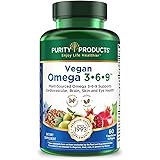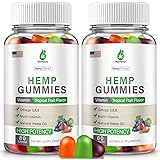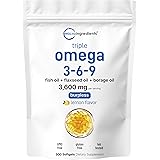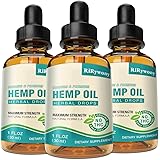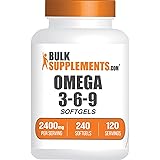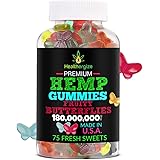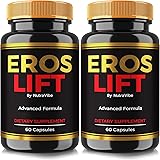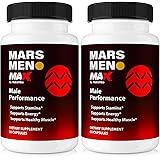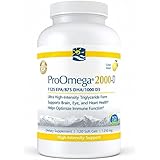In 2008, a formidable Kentucky entrepreneur named Laura Freeman sold her innovative Laura’s Lean Beef business for an impressive $151 million, a testament to her pioneering spirit in bringing lean, antibiotic-free meat to 47 states. Now, over a decade later, Freeman is once again at the forefront of agricultural innovation, this time with **CBD oil in Kentucky**. Her Mount Folly Farm is cultivating hemp, the source of cannabidiol (CBD), for a range of products designed to address various wellness needs. As explored in the accompanying video, the journey into the world of CBD can be perplexing, navigating questions of legality, efficacy, and reputable sourcing. This burgeoning industry offers potential relief for many, yet it is also shrouded in skepticism and evolving scientific understanding. Understanding the nuances of this market is crucial for consumers seeking genuine wellness solutions.
The conversation around CBD oil often conjures images of marijuana, leading to widespread misconceptions about its psychoactive properties. However, a critical distinction lies in the tetrahydrocannabinol (THC) content. CBD oil derived from hemp contains 0.3% THC or less, a negligible amount insufficient to produce the “high” associated with marijuana. This legal threshold is pivotal for understanding the difference between hemp-derived CBD and marijuana products. It ensures that consumers can explore the potential benefits of cannabidiol without intoxicating effects, making it an appealing option for individuals seeking natural wellness support. This crucial differentiation helps alleviate concerns for those new to the CBD landscape.
Hemp’s Resurgence in Kentucky: A Historical Context
Kentucky boasts a rich, albeit often forgotten, history with hemp cultivation. For centuries, hemp was a cornerstone of Kentucky agriculture, primarily harvested for its robust fibers used in ropes, textiles, and paper. Indeed, prior to the rise of tobacco, hemp was arguably Kentucky’s most significant agricultural product, shaping the economic and social fabric of the region. Vast hemp plantations dotted the landscape, providing essential materials for local industries and international trade routes. However, changing agricultural policies and the emergence of other crops led to a decline in hemp farming, with many of these once-thriving plantations becoming mere relics of a bygone era.
The agricultural landscape of Kentucky shifted significantly, with cattle farming eventually replacing hemp as a dominant industry, particularly as highlighted by Laura Freeman’s initial venture into lean beef. This historical pivot underscores Kentucky’s adaptability in agriculture, laying the groundwork for its current re-entry into the hemp market. With the passage of the 2018 Farm Bill, hemp cultivation was federally legalized, providing a renewed opportunity for states like Kentucky to leverage their fertile lands and agricultural expertise. This legislation allowed farmers to once again cultivate hemp, not just for fiber, but for its valuable cannabinoid content, paving the way for the burgeoning **CBD oil in Kentucky** industry. The state’s deep roots in agriculture and its historical connection to hemp provide a unique foundation for this modern revival.
Decoding CBD: Hemp, THC, and the Legal Landscape
The terminology surrounding cannabis products can be confusing, often used interchangeably, leading to misunderstanding. CBD, or cannabidiol, is one of over a hundred cannabinoids found in the cannabis plant. Unlike THC, the primary psychoactive compound in marijuana, CBD does not produce a “high.” This fundamental difference is enshrined in federal law through the 2018 Farm Bill, which legally distinguished hemp from marijuana based on its THC content. Hemp is defined as cannabis with less than 0.3% delta-9 THC by dry weight, making it federally legal to cultivate and process, whereas marijuana exceeds this threshold.
Despite the federal legalization of hemp cultivation, the legal landscape for CBD products remains somewhat “murky,” as noted in the video. While farmers can legally grow hemp, the Food and Drug Administration (FDA) has not yet approved CBD for use in food, beverages, or dietary supplements. This creates a regulatory gray area, even as CBD products are widely sold in grocery stores like Kroger and various retail kiosks. Furthermore, states retain some authority to regulate CBD, leading to a patchwork of regulations across the country. Understanding these complexities is vital for both producers and consumers of **CBD oil in Kentucky**, ensuring compliance and informed choices in a rapidly evolving market.
Laura Freeman’s Legacy: From Lean Beef to Leading CBD Innovation
Laura Freeman’s journey is a testament to entrepreneurial foresight and a commitment to scientific rigor. Her pioneering work with Laura’s Lean Beef in the mid-1980s revolutionized the meat industry, long before “organic” or “grass-fed” became mainstream marketing terms. She implemented a scientific process that ensured her beef was low in fat, grass-fed, and raised with minimal to no antibiotics, a bold move that paid off when her business reached 47 states and sold for $151 million in 2008. This impressive track record highlights her ability to identify market needs and execute on a vision with unwavering dedication to quality and scientific principles.
Five years ago, Freeman returned to her agricultural roots at Mount Folly Farm, driven by a new vision: to cultivate hemp and produce high-quality CBD oil. Her approach to CBD is as meticulously scientific as her beef venture, drawing on her extensive experience. She openly experimented with dosages herself to understand the product’s effects, particularly after experiencing multiple personal injuries. This personal commitment to understanding efficacy is reflected in her brand’s philosophy. Her website features informative articles, including a blog by a neurologist, underscoring her dedication to educating consumers about the potential benefits and responsible use of **CBD oil in Kentucky**. Laura Freeman’s name, once synonymous with lean beef, is now becoming a beacon of trust in the burgeoning CBD industry, providing a reliable choice for consumers.
Exploring the Potential of CBD: Common Uses and Evolving Research
The surge in interest surrounding CBD oil is largely driven by its purported ability to alleviate a range of common ailments that affect a significant portion of the population. Many individuals, particularly within the Baby Boomer generation, seek relief from chronic pain, including that caused by arthritis or injuries from falls. Furthermore, conditions such as stress, anxiety, and sleep disorders are prevalent concerns that CBD is often marketed to address. Autoimmune disorders and general inflammation are also areas where consumers are exploring CBD as a potential complementary therapy, hoping for a natural approach to wellness. The video conversation specifically highlights these patient populations, indicating a clear demand for solutions.
While anecdotal evidence and preliminary studies are promising, the scientific community maintains a cautious stance, often stating that “the jury’s still out” on definitive efficacy. The current body of research suggests some positive indications, particularly for certain types of epilepsy, but comprehensive, large-scale human clinical trials for many other conditions are still in progress. Researchers are actively investigating how CBD interacts with the body’s endocannabinoid system, a complex network of receptors involved in regulating various physiological processes, including pain, mood, and sleep. This ongoing research aims to provide more conclusive evidence regarding the therapeutic potential and optimal applications of **CBD oil in Kentucky** for widespread use. Consumers are advised to remain informed about these evolving scientific findings, balancing reported benefits with current research limitations.
Practical Guide to CBD Products and Administration
Navigating the diverse array of CBD products available today requires careful attention to detail. Consumers will encounter various forms, including tinctures (oils), edible chocolates, topical creams, and even pet treats. It is crucial to distinguish between products labeled simply “hemp” and those specifying “CBD oil” or “full-spectrum hemp extract,” as the former may refer only to hemp seed oil, which contains negligible CBD. Products specifically labeled with CBD content, particularly those from reputable sources like Laura Freeman, ensure that you are receiving the intended cannabinoid for potential therapeutic effects. Reading product labels diligently for cannabinoid content and third-party lab testing results is an essential step for informed purchasing decisions.
Proper administration and dosage are key to experiencing the potential benefits of CBD oil. As recommended by Laura Freeman based on her personal experience, a starting dosage of 25 milligrams of CBD is suggested for her full-spectrum hemp extract. This typically translates to filling a 1.0 milliliter line on a standard dropper from a one-ounce bottle, which would then last approximately 30 days. For optimal absorption, it is often recommended to administer the oil sublingually—placing it under the tongue and holding it there for as long as possible before swallowing. This method allows CBD to be absorbed directly into the bloodstream through mucous membranes, bypassing the digestive system and potentially increasing bioavailability. Consulting with a healthcare professional before starting any new supplement regimen, especially with existing medical conditions or medications, is always advisable, even when considering **CBD oil in Kentucky**.
The Future of CBD in Kentucky: A Continuous Evolution
The landscape of CBD in Kentucky, and globally, is characterized by its rapid evolution, with both scientific understanding and legal frameworks moving at a swift pace. While the initial scientific findings are often described as “positive” yet “inconclusive,” research continues to expand, promising clearer insights into CBD’s mechanisms and optimal applications. This ongoing discovery underscores the importance of staying informed and looking to sources committed to science and transparency, much like Laura Freeman’s approach. Her dedication to quality and research provides a significant benchmark in a market that is still maturing and establishing its best practices.
As regulations solidify and more robust clinical trials are completed, the clarity around CBD’s benefits and safe usage is expected to increase significantly. The journey of **CBD oil in Kentucky** reflects a broader trend of agricultural innovation and wellness exploration. For consumers, the emphasis remains on choosing reputable producers who prioritize quality, transparency, and scientific backing. The continuous dialogue between farmers, scientists, regulators, and consumers will ultimately shape the future of this promising compound, ensuring that its full potential can be harnessed responsibly and effectively for wellness needs.


